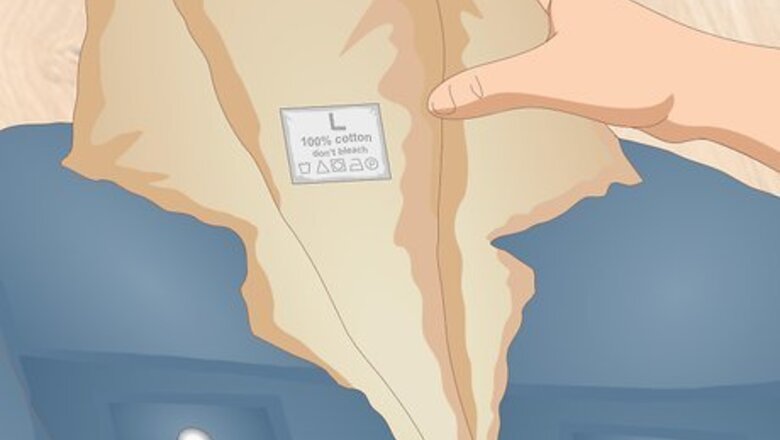
views
Using a Washing Machine
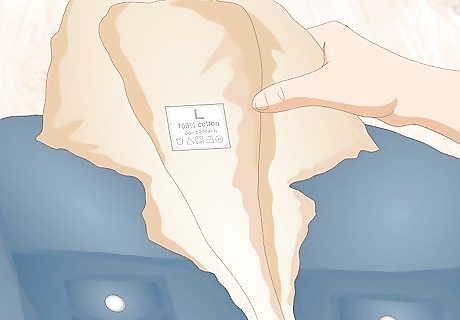
Check the tag on the jacket for specific washing instructions. Depending on the fabric, the style, and the manufacturer of the jacket, there may be special instructions for how to wash the garment. Before washing, see if the tag includes any information that might affect typical laundry care, such as warnings or extra steps.
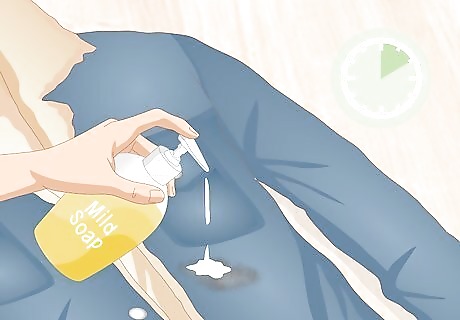
Pre-treat stains by covering them with a mild soap for 10 minutes. If your jacket has a stain, pour a small amount directly onto it and spread the soap around so that the stained area is fully covered. After about 10 minutes have passed, gently dab the stain with a paper towel to absorb the residue. Dish or hand soaps work well for removing stains. If you have a stain remover, you can use that, too, by following the directions on its label. Don't rub the stain with a towel as this will just spread the stain deeper into the fabric.
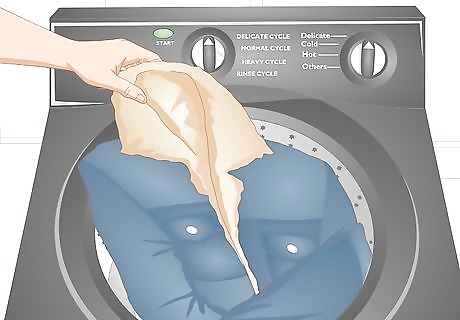
Place the garment into the washing machine by itself. Though it may seem like a hassle, to best preserve the fabric you should wash the jacket by itself. If you cannot wash the jacket without other articles of clothing or fabrics, try to wash similar fabric styles to sherpa (faux fur, shearling, etc.) with the jacket instead of other fabric materials.
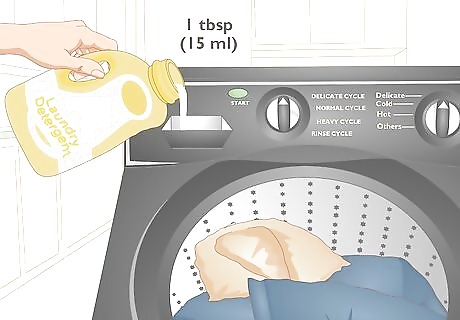
Pour a 1 tablespoon (15 mL) of gentle detergent into the washer. Do not use a detergent that contains fabric softeners, bleach, or chlorine. These ingredients can ruin the softness of the sherpa.
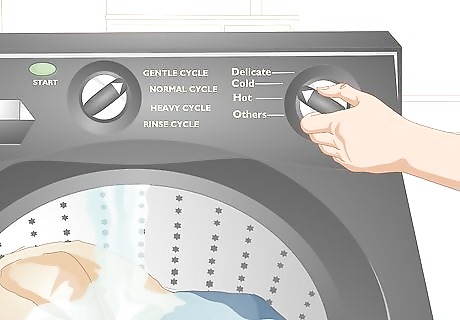
Set the washer to its gentlest cycle and a cool temperature and start the cycle. If your washing machine has a setting for delicates, use that option. The water should be set to the machine's coldest setting as warm or hot water will most likely damage the sherpa fabric.
Drying the Jacket
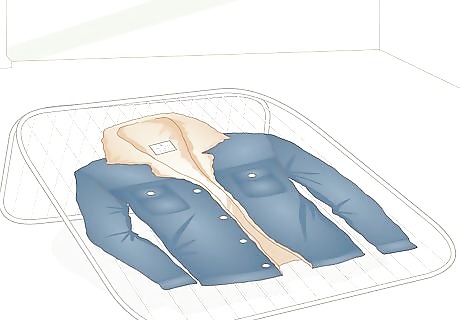
Lay the jacket flat on a drying rack. Set up the rack in a part of your home that gets the most sun and has good air flow. Place the jacket onto the drying racket so that it is as flat as possible, which will prevent creasing and denting in the fabric.
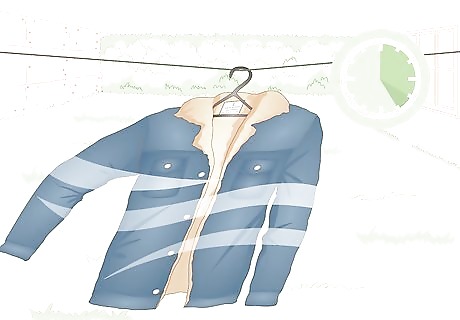
Air-dry the jacket for 4 to 5 hours. Air-drying is the best way to dry delicate clothes, as it doesn't cause the same wear and tear that a dryer would. The exact amount of time your garment will take to air-dry will vary based on several factors, such as humidity, temperature, and how effective the spin cycle on your washer is. Check on the jacket every hour or so to see if it has dried or still needs a bit longer.
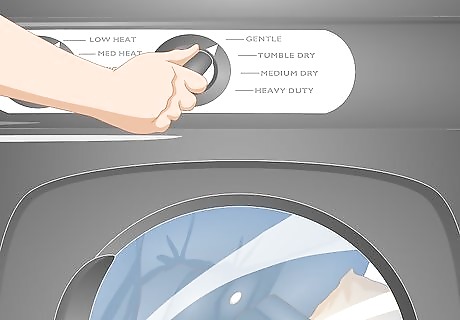
Use your dryer's gentlest tumble cycle if you can't air-dry the jacket. If your dryer has a setting for delicates, use this option. Otherwise, you should run a tumble drying cycle. Make sure that the heat setting is low, as high or even medium heat levels could damage the fabric materials.
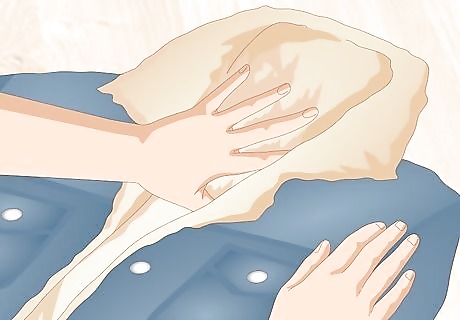
Fluff the fabric with your fingers after the sherpa jacket has fully dried. Run your fingers through the fabric to loosen it and get rid of any clumps. This will help keep your sherpa feeling soft and can prevent matting. Never use an iron on sherpa. Doing so will damage the fabric and can cause it to fall out of the garment.
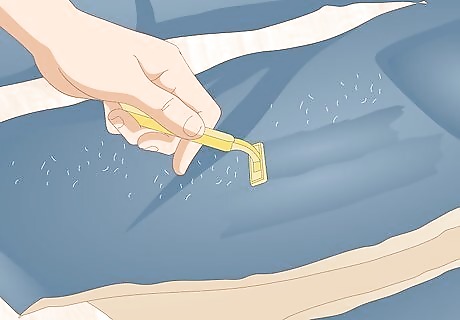
Remove pilling by running a disposable razor gently across the garment. Pilling and matting will inevitably start to happen to your sherpa after you wash it. To get rid of it, use a small razor to shave upwards, against the "grain" of the fabric. Start out very gently, and add pressure only if you need. After you've accumulated a pile of pills, use a piece of tape to get the balls of pilling off of the jacket.
Spot-Cleaning a Stain by Hand
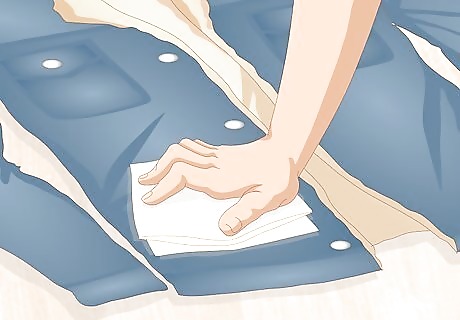
Blot the stain with a clean paper towel to remove excess liquid. If the stain is fresh, you should start out by dabbing the stained area with a paper towel or other clean cloth, which will absorb some of the liquid. Never rub the stain with a paper towel or cloth. Rubbing will only cause the stain to set deeper into the fabric, making it harder to get out.
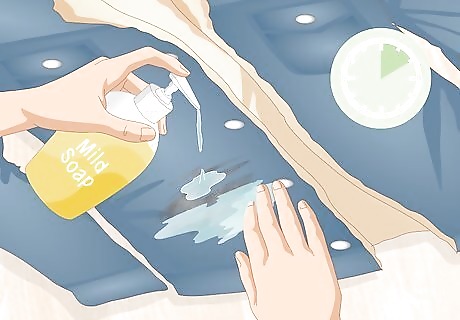
Soak the stain with a mild soap or stain remover for 10 minutes. Lay the jacket onto a flat surface. Pour a bit of soap or stain remover onto the stained area and spread it around so that the entire stain is covered by a thin layer of the soap or stain remover. You should try to limit how often you wash a sherpa jacket to keep the material in good shape. If you only have a small stain to deal with, it's best to spot-clean rather than wash the entire garment.
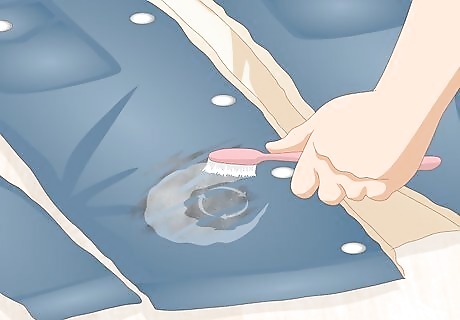
Scrub the stained area gently with a toothbrush or sponge. Use an old toothbrush with soft bristles or a soft sponge to prevent damage to your sherpa. Scrub the surface of the material using small circles to remove the stain and the soap.
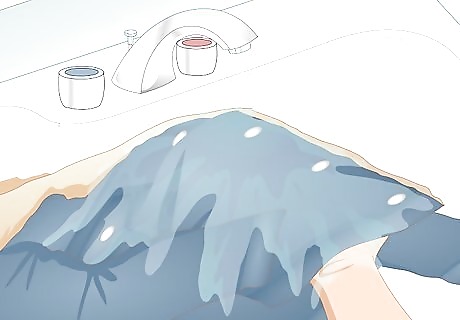
Rinse the stain and surrounding area with cool water in the sink. Rinse the stained area completely with fresh water so that no soap residue is left behind. You only need to wet the stained area to rinse the sherpa. Avoid getting the rest of the material wet unless there's no way around it. As with a washing machine, warm water can damage the fabric, so make sure the water is cool to the touch before you start to wash the jacket.
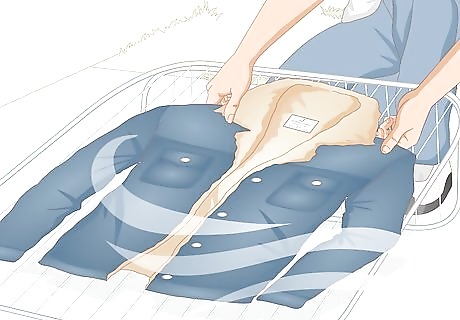
Lay the jacket flat on a rack to air-dry. Do not put it in the dryer, as this could cause any residue still on the jacket to set and make the stain harder to get out. If the stain remains after the jacket is dry, you can use the same process to pretreat the jacket before tossing it in your washing machine.













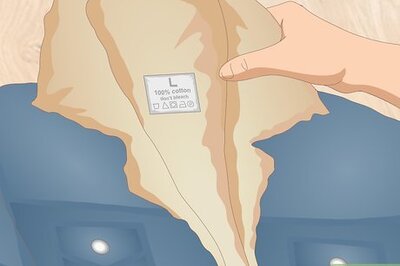





Comments
0 comment